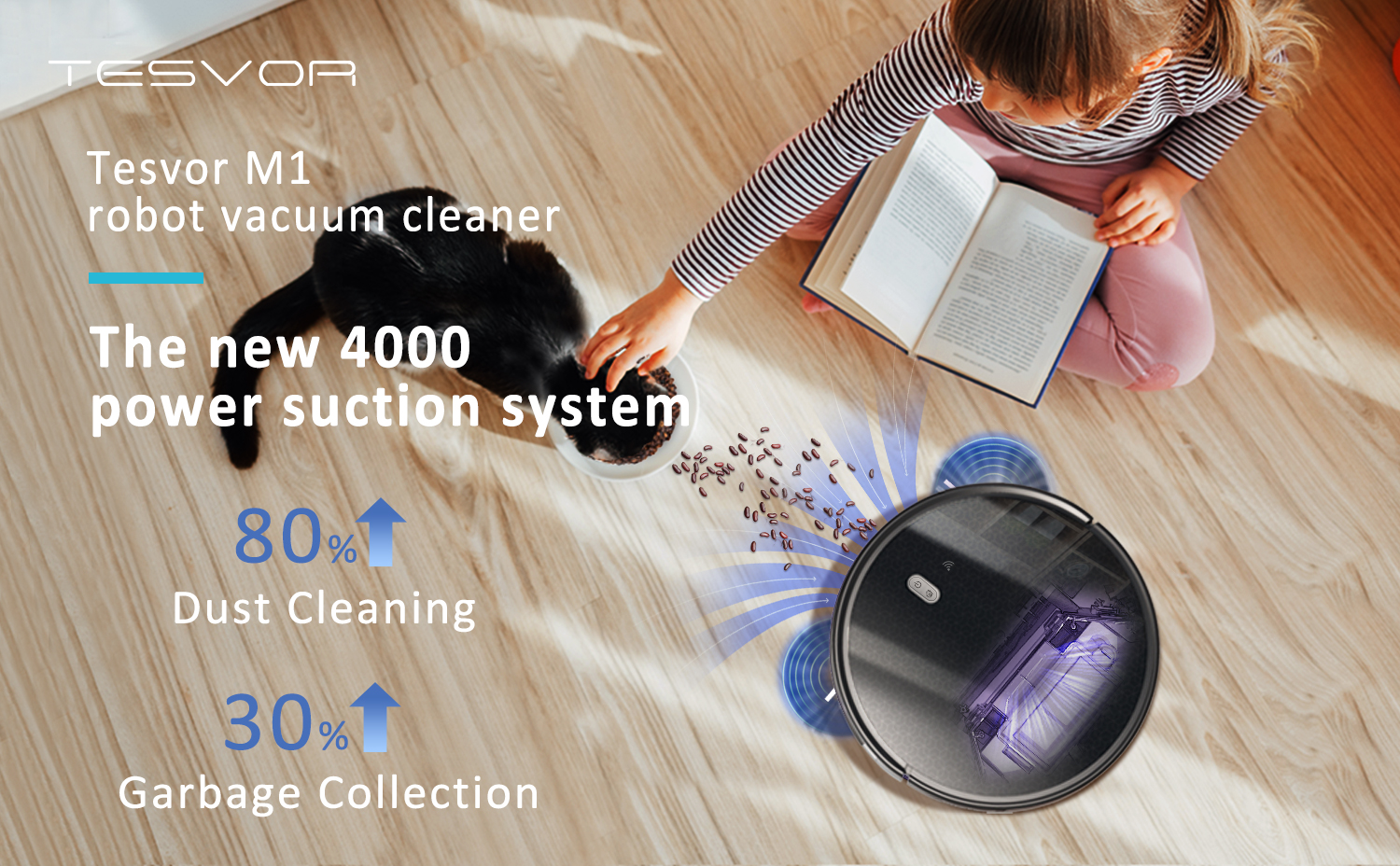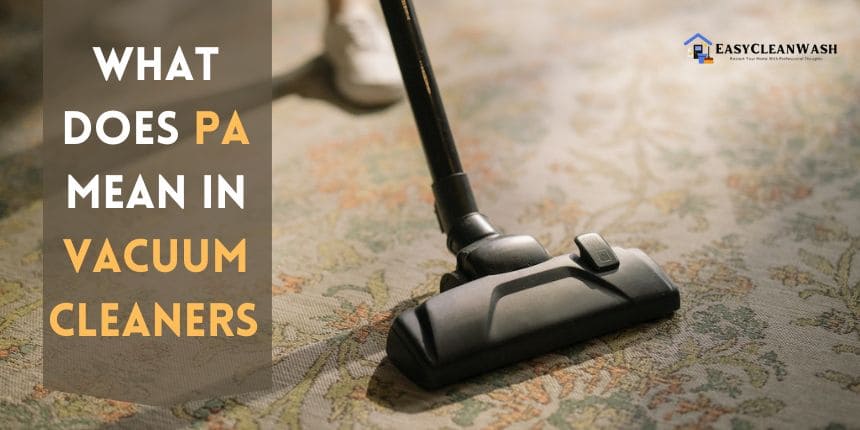There are a lot of different types of vacuum cleaners on the market these days. Some people may not know what all the different features and options mean. One thing that you might see on a vacuum cleaner is the letter “pa.”
What does this mean? “Pa” stands for “pounds per square inch.” This is a measure of how much suction power the vacuum has.
The higher the number, the more suction power it has. This is important because you want a vacuum cleaner that can pick up all the dirt and dust from your floors. If you have a lot of carpeting, you will want to look for a vacuum with high suction power so that it can clean deep down into the fibers and remove all the dirt and debris.
When it comes to vacuum cleaners, the ‘Pa’ rating is an important measure of a machine’s suction power. But what does this term actually mean?
In short, ‘Pa’ stands for ‘Pascal’.
This is a unit of measurement that relates to the amount of force that is exerted on a given area. In the case of vacuum cleaners, it refers to the amount of suction power generated by the machine.
The higher the Pa rating, the more powerful the suction.
So if you’re looking for a vacuum cleaner that can really tackle those stubborn dirt and dust particles, then you’ll want to look for one with a high Pa rating.

Credit: www.tesvor.com
Page Contents
- 1 What is a Good Pa for Vacuum Cleaner?
- 2 How Many Pa is a Normal Vacuum?
- 3 How Much Pa is Good for a Vacuum Cleaner?
- 4 How Many Kpa is a Good Vacuum Cleaner?
- 5 See Which Hotels Were Caught Not Changing Bedsheets for New Guests
- 6 Is 6000 Pa Suction Good
- 7 What is a Good Pa Suction Power
- 8 Highest Kpa Vacuum Cleaner
- 9 Some FAQs Regarding Vacuum Cleaners
- 10 Conclusion
What is a Good Pa for Vacuum Cleaner?
A PA is a good choice for a vacuum cleaner because it is powerful and will clean your floors well. It is also lightweight and easy to maneuver, making it a good choice for people with back pain or other mobility issues.
How Many Pa is a Normal Vacuum?
A typical vacuum typically has around 20-24 PA of suction. However, some higher-end vacuums can have up to 35 PA of suction. The amount of suction your vacuum has will depend on the model and make of the vacuum.
How Much Pa is Good for a Vacuum Cleaner?
When it comes to choosing a vacuum cleaner, one of the most important factors to consider is its suction power, which is measured in pascals (PA). The higher the PA rating, the more powerful the vacuum will be. But how much suction do you really need?
For most homes, a vacuum with a PA rating of 1000-2000 should be sufficient. If you have a lot of carpeting or pets, you may want to opt for a vacuum with a higher PA rating. But keep in mind that more suction doesn’t always mean better cleaning performance.
Vacuums with very high PA ratings can actually be less effective at picking up dirt and debris because they can cause carpets and fabrics to bunch up.
How Many Kpa is a Good Vacuum Cleaner?
A good vacuum cleaner typically has around 100 KPA of suction power. However, this can vary depending on the type of vacuum and what it is being used for. For example, some vacuums are designed specifically for hard floors and will have less suction power than ones made for carpets.
See Which Hotels Were Caught Not Changing Bedsheets for New Guests
Is 6000 Pa Suction Good
When it comes to suction pressure, there is no definitive answer as to whether or not 6000 Pa is good. The reason for this is because the amount of suction pressure that is ideal for a given situation depends on a variety of factors, including the type of flooring being cleaned, the level of dirtiness, and the user’s preferences. That said, in general, the higher suction pressure is better than the lower suction pressure when it comes to cleaning efficiency.
Therefore, if you are looking for a powerful vacuum cleaner that can get the job done quickly and thoroughly, 6000 Pa may be a good option for you.
What is a Good Pa Suction Power
If you’re looking for a good vacuum cleaner, one of the most important things to look for is suction power. Suction power is a measure of how well the vacuum cleaner can remove dirt and debris from surfaces. The higher the suction power, the better the vacuum will be at cleaning.
There are two main ways to measure suction power: air watts and amps. Air watts measure the amount of air that the vacuum cleaner can move in a given period of time. Amps measure the amount of electricity that the vacuum uses.
Generally speaking, vacuums with higher air watt ratings will have more suction power than those with lower ratings. However, this isn’t always the case. Some vacuums have powerful motors that use a lot of electricity, but don’t generate much airflow.
As a result, they may not have as much suction power as you would expect.
When shopping for a new vacuum, it’s important to read reviews to see what other people think about the suction power. Pay attention to both positive and negative reviews to get an idea of whether or not the vacuum will meet your needs.
Highest Kpa Vacuum Cleaner
In order to find the highest Kpa vacuum cleaner, you will need to do some research. The reason for this is that not all vacuum cleaners are created equal. Some may have higher Kpa ratings than others.
When it comes to looking for a new vacuum cleaner, the first thing you should do is decide what type of vacuum cleaner you want. There are many different types available on the market today. Once you have decided on the type of vacuum cleaner, then you can start your search for one with a high Kpa rating.
One way to find out the Kpa rating of a particular vacuum cleaner is to read reviews about it online. Another way is to check the manufacturer’s website or product information sheet. If neither of these methods works, then you can always contact customer service and ask them directly.
Once you have found a few different options, it is time to compare them side by side. This will help you see which one offers the most features and benefits for your needs. It is also important to compare prices so that you can get the best deal possible.
When comparing vacuum cleaners, pay close attention to things like suction power, dirt capacity, noise level, and weight. These are all important factors that will affect your decision-making process. After taking all of these factors into consideration, then you can make your final decision and purchase the highest Kpa-rated vacuum cleaner.
Some FAQs Regarding Vacuum Cleaners
Is 2000 Pa Suction Good
2000 Pa suction is pretty good when it comes to vacuum cleaners. It’s not the best that you can get, but it’s definitely not the worst. This level of suction should be able to pick up most types of dirt and debris without any issues.
If you have a particularly dirty home, you may want to look for a vacuum cleaner with a higher suction power. But if your home is relatively clean, 2000 Pa should be more than enough.
Is 9000 Pa Suction Good
A suction of 9000 Pa is considered to be good suction power. This means that the vacuum cleaner will be able to move more dirt and debris than a vacuum with a lower suction power. If you have a home with carpeting, this is the ideal suction power for your needs.
What is a Good Suction Power for a Vacuum Cleaner
A good suction power for vacuum cleaners can be determined by the type of vacuum you have. For example, if you have a cordless vacuum, the suction power will be significantly lower than if you had a corded vacuum. The size of your home also plays a role in determining how much suction power you need.
If you live in a small apartment, you won’t need as much suction power as someone who lives in a large house. Ultimately, it’s up to you to decide what’s best for your home and your vacuum cleaner.
What Does 2,000 Pa Suction Mean
2,000 Pa suction is the amount of pressure required to remove water from a surface using a vacuum cleaner. This value is typically measured in inches of mercury (inHg). To convert 2,000 Pa suction to inHg, divide 2,000 by 33.86 (the conversion factor).
This gives you 59.06 inHg, which is the equivalent of 2,000 Pa suction.
Conclusion
Pa is a measure of air pressure and is an important factor to consider when buying a vacuum cleaner. The higher Pa, the more powerful the vacuum will be. However, too much power can actually make it harder to clean your floors, so it’s important to find the right balance for your needs.
Related Posts:
Know Reversing Vacuum Cleaner Airflow
How Long Can You Run A Pressure Washer Without Water
How Hot Does A Steam Cleaner Get Guide


4 thoughts on “What Does Pa Mean in Vacuum Cleaners – Simple (But Important) Things”